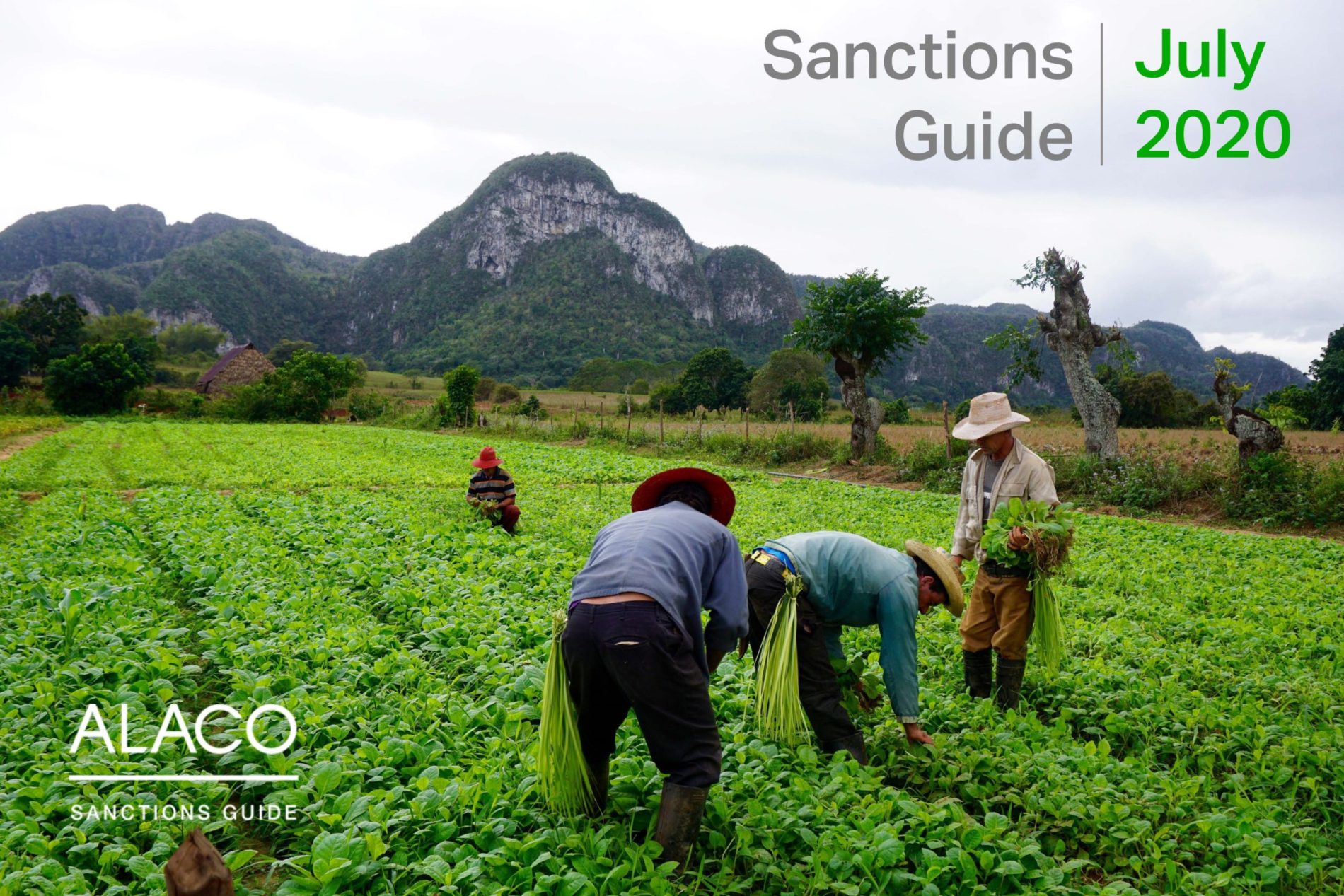Sanctions Guide – July 2020
Key sanctions developments in June include President Trump’s seeming U-turn over plans to sanctions Chinese officials implicated in human rights abuses; the US sanctioning of International Criminal Court staff involved in investigations into US military conduct in Afghanistan; and Germany’s apparent threat to sanction Russia over suspicions that it ordered the assassination of a former Chechen militant in Berlin.
- Trade disruption concerns have prompted President Trump to hold off sanctioning Chinese officials linked to the alleged persecution of Uighur and other ethnic Muslims in Xinjiang province in western China. The president had signed off on new legislation, the Uighur Human Rights Act, sanctioning the officials – provoking threats of retaliation from Beijing. Subsequently, Trump told US media that he had chosen not to implement the measures because of their possible impact on a recently-negotiated trade deal between Washington and Beijing. Under the agreement, which came into effect in February, China said that over the next two years it would purchase at least $200 billion additional US goods and services.
In a separate development, the US president has said he is not considering sanctions against Xi over Beijing’s imposition of national security legislation on Hong Kong in May. Washington said it would issue sanctions against Chinese and Hong Kong officials responsible for the move and also remove special trade privileges for the territory.
- The US has imposed a new round of sanctions on Syria under the Caesar Syria Civilian Protection Act, targeting the Assad family; Damascus officials; and third-parties, including Russian and Iranian entities aiding the government in the construction, engineering, aviation and energy sectors. The law, named after a Syrian who smuggled evidence of regime abuses out of the country, may also result in restrictions on Syria’s Central Bank, should the US Treasury designate it a “primary laundering concern”. The sanctions coincide with efforts by Damascus to attract foreign investors to help finance the reconstruction of the country, the cost of which is estimated at between $400 billion to $1 trillion.
- The US has followed up an earlier warning over maritime sanctions evasion by sanctioning four crude oil tankers and their owners it deemed to be violating its programme targeting the Venezuelan government. The Treasury said the vessels, registered under the flags of Panama, Malta, the Bahamas and the Marshall Islands, had “continued to lift oil cargoes from Venezuelan ports” in violation of US sanctions against the Caracas regime. Washington believes maritime companies are being used by the Maduro government to profit from the transportation of Venezuelan oil. An OFAC advisory in May warned stakeholders in the shipping industry to be alert to such illicit activity. The action may also be linked to Iran’s delivery to Venezuela of five tankers carrying petrol supplies, in defiance of American trade restrictions. Separately, the US has blacklisted two Mexican companies accused of helping Venezuela evade sanctions through the sale of oil.
- Germany’s foreign minister, Heiko Maas, has suggested that Russia may face sanctions over the suspected contract killing of Zelimkhan Khangoshvili, a Georgian citizen of Chechen descent, in the German capital last year. Mass said that Berlin “expressly reserves the right to take further measures in this case”. Federal prosecutors in Germany have charged a Russian national, identified as Vadim K, with the crime, which they believe was ordered by Moscow. In late May, the German foreign ministry said there was reliable evidence that a Russian national, Dmitry Badin, suspected of a 2015 hacking attack on the German parliament, was a member of the Russian intelligence agency at the time of the incident. It said Berlin would seek to use EU cyber-sanctions against those responsible, including Badin, for whom an arrest warrant has been issued. Badin, who is believed to be a member of the hacker group APT28, is also wanted by the FBI in relation to other cyberattacks.
- The US sanctioning of International Criminal Court employees investigating whether American military personnel committed war crimes in Afghanistan has prompted expressions of support for the tribunal from more than half its members, including US allies such as Australia, the UK and the Netherlands. A US entry visa for the court’s chief prosecutor Fatou Bensouda was last year revoked after she asked judges to launch an investigation into alleged war crimes in Afghanistan. Her request was initially turned down, then authorised after she appealed.


